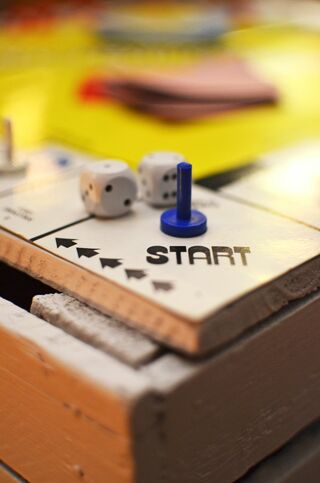Motivation
Set New Year's Resolutions or Live With Intention Now?
Moving from setting resolutions in the new year to setting intentions now.
Posted November 25, 2020 Reviewed by Ekua Hagan
This week, my client asked me whether I will be working between Christmas and New Year. I did not know. I had been charging full speed ahead and had not thought about it. I am grateful to my client for prompting me to look up from my computer and take a moment to reflect on 2020 ending and 2021 approaching. I hope that this blog post can serve as a prompt for you too.
The end of December represents a transition point. It is a time when people share their reflections on how the last year has gone, their joys and sorrows, and set resolutions in the hope that they will fare better in the new year. We hold on to a vision of a better year, a better us, a better future. New year, new start, new resolutions.
The concept and implementation of resolutions can be hard for many to grapple with. If New Year's resolutions do not work for you, I invite you to consider the idea of setting intentions and starting now.
Take a moment to reflect on how resolutions work for you
We set resolutions based on the things that we want to improve and change in our life. The Cambridge dictionary defines resolutions as "a promise to yourself to do or to not do something." The first thing that comes to mind when I read this is: What happens when we break the promise to ourselves?
This is typically how it goes for me: Throughout January, I am going strong with those resolutions. Come mid-February, the novelty of the new year fades and this is paired with the increased demands of life. So those resolutions start to take a backseat. This brings a frustration or disappointment at "not succeeding," and a gradual abandonment of the resolutions as though they were never really important. By the next new year, I would have forgotten what my resolutions were in the first place, yet I set new ones again. Doing the same thing and expecting different results…
Caveat: If setting New Year's resolutions works for you, then go for it. This is about discovering what you need and what is helpful for you personally.
Setting intentions
What if we shift our focus instead to setting intentions?
Intentions are about who we want to be in the present moment and how we want to show up in our lives. Intentions are based on what our values are, i.e., what is important to us in different areas of our life, such as our physical health, mental health, career, hobbies, relationships with family, friends, partners, education.
Intentions are different from goals because goals are about what we do. However, they are related because intentions give us a direction and will that empower us to set and achieve goals; to act and take decisions that honor the person we want to be based on what matters to us. This can enable us to live a meaningful life and have fulfilling relationships with others and ourselves in the present.
Here are a few other points to consider regarding the traps that come with resolutions and how intentions can step in to help.
Starting now rather than waiting for the future
Resolutions are concerned with achieving goals at a future time point (for instance, by the end of the month or year). One challenge with this is that waiting to start resolutions in the new year may increase the likelihood that we behave in the opposite way until then. For example, if our resolution is to eat a balanced diet in the new year, we may indulge in as much junk food as possible before then. Not only will this be costly for our health in the moment, but we will have to work harder to get healthy in the new year. This can be self-defeating because it makes our resolution unappealing and harder to maintain in the long term.
Another challenge with future-focused resolutions is that it may take weeks and months to experience the benefits of change because habits take time and persistence to break. Therefore, in the present, we may not have enough positive reinforcement to keep us going. Furthermore, we tend to bite off more than we can chew as we set multiple, big New Year's resolutions without specific enough plans and goals in terms of how to achieve them: I am going to get fit and lose weight, start a new hobby, stop drinking, and work towards a promotion. It is easy to see how this can get overwhelming.

It is similar to the idea of "living for the weekend." Whilst thinking about weekend plans can act as a source of motivation to keep us going, it can come with some unintended consequences. By Tuesday we are already counting down the days and Sunday afternoon to Thursday evening can feel painful to get through.
It can serve us better to also focus on what gives our life meaning and fulfillment now, on a daily basis, and not just relying on the short-lived pleasure of the weekend.
Intention setting does this. It shifts away from the restriction of resolutions that are time-bound to the new year and the future. Instead, intentions have a broader focus on the present moment and on how we act now, no matter what month of the year.
Focusing on the journey and not the destination
We set resolutions to address something in our life that went wrong or to fix some aspect of ourselves we do not like and want to improve. We focus on the outcome and end-result, and especially on the lack of it. We compare ourselves to others and to the ideal version of ourselves to motivate us to change and improve. Making comparisons has an evolutionary function that can enable us to be accepted and remain part of the group to therefore survive.
However, comparisons tend to emphasize a bottom-line belief that we are not good as we are. If overused, comparisons can leave us with a sense of inadequacy and become ineffective as a source of motivation to change.
The language of being intentional can bring more flexibility because it moves away from the dichotomous language of "good or bad," and "success and failure." We set intentions to honor the person we want to be; not because we are wrong as we are, but in order to be our authentic self.
Furthermore, intentions are concerned with the journey and not the destination. The focus is on the process and our experience of the journey, irrespective of what we gain or lose. If we achieve multiple goals along the way then that is a bonus. However, the journey still carries on after that. For instance, if we set an intention to be self-compassionate, then we bring this to our daily experiences, whether it is the meeting at work, washing the dishes, making mistakes, learning a new skill, arguing with a partner, etc.
Bringing values, intentions, and goals together
It can help to understand values, intentions, and goals because they are all important and they are important together. Having one alone can get us stuck.
If we don’t know what our values are and what is important to us, we may struggle to set intentions for ourselves. We may find ourselves having no sense of purpose and following what society dictates or mimicking how other people live. We lose our sense of self. So, we may need to invest in exercises that help us think about our values.
If we set goals without intentions, we may find ourselves doing things mechanically because we "should" and not because it matters to us. We will be more likely to abandon our goals.
If we do not know how to set goals and we set overly complicated goals, we may find it hard to act in line with our intentions. We may need to develop skills of how to set and achieve goals that are specific, measurable, achievable, relevant, and time-based (SMART goals).
This is how values, intentions, and goals can come and work together:
We can set a goal to engage in an act of self-care a day which is based on our daily intention to take care of ourselves in the moment. If we find ourselves not taking care of ourselves during the week, our intention is still there however because self-care is one of our values. It removes the disappointment and sting of failure that can come if we just focus on the final outcome of whether we did or did not meet our goal. By focusing instead on the effort we made and the process that we went through, it can increase the chances that tomorrow we continue to behave and take decisions in line with our value of self-care and that this carries on in the long term.
How to set a daily intention
You can set intentions for the moment, day, week, month, and year. Here is a guide on how you can set a daily intention.
- Set your intention at the start of the day (whilst you are still in bed and before the rush of the day begins).
- Take a moment, slow down, and take a few deep breaths.
- Check in with yourself. (How are you feeling? What thoughts are going through your mind?)
- Check what you have planned for your day ahead.
- Based on your state of mind and the plans for the day, think about what matters to you in how you face the day, what you need, what is going to help you. (Remember to think about this based on your values and what kind of person you want to be as you approach this day.)
- Set your intention for the day using the language that works for you. Today I commit myself to... My intention is to approach the day with…
- Write down your intention on paper or your phone or share it with another person. (This can make it feel more real.)
- Set your mind, focus, and approach throughout the day towards this intention. (It is OK if you forget about your intention during the day. It is not really forgotten because your intentions are linked to your values and your values are always part of you.)
- Find a moment to come back to your intention to reflect on how you lived by this. (The aim is not to judge yourself as good or bad or as having succeeded or failed. Rather, it is to acknowledge where you are at and learn about what you may want to carry forward to the next moment or to tomorrow.)
Try it out. There is no better time than today to start to pair who you want to be with what you want to do. Here are some examples of daily intentions to get you started:
Today, my intention is to be kind to myself/others.
Today, my intention is to be present when playing with my children.
Today, my intention is to treat my body with respect.
Today, my intention is to maintain an open-mind in my work meeting.
Today, my intention is to face the things that I have been avoiding.
Today, my intention is to approach this day with courage.




